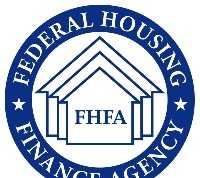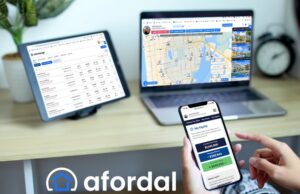Annual NeighborWorks America survey depicts persistent disparities in homeownership
More than one-in-three Americans are currently looking for a new home, yet unequal access to financial resources keeps dream out of reach for people of color and lower-income earners
Washington, D.C. – RealEstateRama – Despite a year of financial challenges and setbacks, the rate of homeownership remained the same, as did troublesome socioeconomic disparities in homeownership, according to NeighborWorks America’s 2021 Housing and Financial Capability Survey. Today, nearly two-in-three Americans (62%) own a home. Black homeownership remains the lowest among those surveyed — 42% of Black adults own a home, a rate virtually unchanged from a year ago, compared to 69% of white adults and 53% of Hispanic or Latinx adults. Black adults face some of the biggest obstacles to buying a home with 63% saying they don’t think they would be approved to buy a home by a bank or credit union.
“The opportunity to pursue the American Dream of homeownership is still too limited, especially in communities of color across all income brackets,” said NeighborWorks America President & CEO Marietta Rodriguez. “NeighborWorks America and the NeighborWorks network work hard every day to open up the path of homeownership to all those who wish to pursue the dream of owning their own home.”
Lower-income earners and people of color lack access to financial resources for homeownership
The COVID-19 pandemic has exacerbated financial distress for many Americans. Seventy-three percent of people who’ve been financially challenged by COVID-19 say it will take six months or more to recover, and 46% say it will take a year or more.
Due to or despite this financial distress, more than one-in-three Americans (36%) are looking for a new place to live. Most Americans see clear benefits in owning a home, with 89% agreeing that owning a home gives or would give them a sense of safety and security. Yet for lower-income households (less than $30,000) and people of color, enduring obstacles — including a lack of access to home buying information and financial services like savings accounts, credit cards and investments — makes homeownership especially difficult.
While most Americans (78%) use a checking account, the number is lower among Hispanic or Latinx adults (71%), Black adults (69%) and lower-income earners (63%). Sixty-six percent of U.S. adults own and use a credit card compared to 63% of Hispanic or Latinx adults, 51% of Black adults and only 37% of lower-income earners. Only 18% of lower-income earners, 37% of Black adults and 45% of Hispanic or Latinx adults have either personal financial investments or a work retirement account compared to half (51%) of all Americans and 55% of white adults.
Credit remains a barrier to homeownership, particularly among Black and Hispanic or Latinx adults
The survey makes a strong case for credit as a leading cause in widening the gap in homeownership and wealth disparities between Black, Hispanic or Latinx and white Americans. Among all Americans, nearly three in ten (31%) have had financial applications denied or delayed due to their credit score, including 41% of Black adults, 39% of Hispanic or Latinx adults and 36% of low-income earners. In contrast, just 27% of white adults have had a financial application denied because of a credit score.
These problems are more acute for non-homeowners — in particular, 43% of Black non-homeowners have had financial applications denied because of a credit score. Another 36% of non-homeowners do not know their credit scores, even approximately, including 38% of Black non-homeowners and 44% of Hispanic or Latinx non-homeowners; just 34% of white non-homeowners say the same.
Appetite for financial planning and information on homeownership
A large share of the U.S. population is looking for guidance on their path to homeownership. Half of Americans (50%) said they want to take classes to improve their financial situation, including 66% of Black adults and 56% of Hispanic or Latinx adults. Among non-homeowners, 58% would be interested in receiving information on the home buying process. This interest is particularly strong among Black non-homeowners, 68% of whom would be interested in this information. Non-homeowners are also in need of guidance to achieve their financial goals, including acquiring and using credit (63%), budgeting (63%) and reducing debt (59%).
Survey Methodology: NeighborWorks America’s 2021 Housing and Financial Capability Survey offers insights into Americans’ attitudes towards housing security and homeownership and the obstacles potential and current homeowners face and the role of financial readiness in securing homeownership. The survey was conducted online from April 19 to 28 among 1,603 adults ages 18 and older, including oversamples for Black, Hispanic or Latinx and Asian adults. Data are weighted on seven demographic variables to reflect the composition of the U.S. adult population. Since 2019, NeighborWorks America has conducted its annual Housing and Financial Capability Survey to collect data that helps create the groundwork to stabilize communities.
Visit our survey findings page for more results and information on how NeighborWorks America continues to help build communities. To schedule an interview with Marietta Rodriguez or other NeighborWorks experts, ">contact .
About NeighborWorks America
For more than 40 years, Neighborhood Reinvestment Corp., a national, nonpartisan nonprofit known as NeighborWorks America, has strived to make every community a place of opportunity. Our network of excellence includes nearly 250 members in every state, the District of Columbia and Puerto Rico. NeighborWorks America offers grant funding, peer-exchange, technical assistance, evaluation tools and access to training, as the nation’s leading trainer of housing and community development professionals. NeighborWorks network organizations provide residents in their communities with affordable homes, owned and rented; financial counseling and coaching; community building through resident engagement; and collaboration in the areas of health, employment and education.
Contact:
NeighborWorks America Media
202-760-4097















